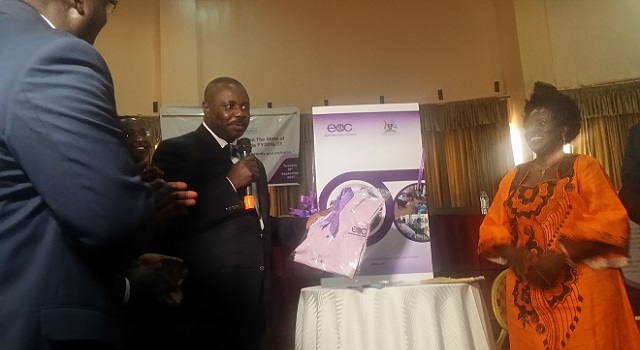
Kampala, Uganda | JULIUS BUSINGE | Deputy Speaker of Parliament Jacob Oulanyah has appealed to Members of Parliament, Equal Opportunities Commission, and institutions of government and others to champion equal opportunities for all.
“The future of our great nation among other things largely depends on the importance we attach on issues of equity and inclusion; if it is not equitable, people will complain; if it is not inclusive people will feel left out and when people feel cheated and left out, they are angry, they start asking questions…do we belong to this country,” he summarised his call.
On the side of Parliament, he said the budgeting process ensures that whatever they approve [in Parliament] are tested against standards of equity and inclusion by some certificate of compliance issued by the Equal Opportunities Commission (EOC) in addition to checking the compliance of government spending agencies with development plans.
“By and large we are not doing badly,” Oulanyah said without giving specifics.
He added: “But when we say equal opportunities, what are we saying… is it a recognition that in Uganda we already have equal opportunities; or is it a declaration of commitment that all of us must work together to deliver equal opportunities to all Ugandans without anybody being disadvantaged either on account of sex, disability or age.”
Oulanyah said that achieving a dream of equal opportunities requires everyone to join the battle.
“Let’s move away from high sounding slogans to action because that is the only thing that eventually we count; what works is what counts; it doesn’t work, it doesn’t count and it has to help people to count,” he said.
Oulanyah made the remarks as Guest of Honor at the launch of the 4th (2016/2017) Equal Opportunities Commission report at Imperial Royale Hotel on Sept. 19.
Sylvia Nabatanzi Muwebwa, the chairperson of the EOC said that by taking up gender and equity budgeting “then we shall be able to address the different challenges we have noted in our various reports”.
Equal opportunities in all aspects mean equal contribution to the country’s development plans and prosperity for all.
Oulanyah and Sylvia’s comments came after a recently published report by an international NGO, Oxfam that indicated that the richest 10% of Ugandans have had their income grow by an impressive 20% per year – which meant that the 10% richest Ugandans own 35.7% of the country’s wealth, leaving the remaining 90% of Ugandans to share the remaining 64.3% of national income.
 The Independent Uganda: You get the Truth we Pay the Price
The Independent Uganda: You get the Truth we Pay the Price



